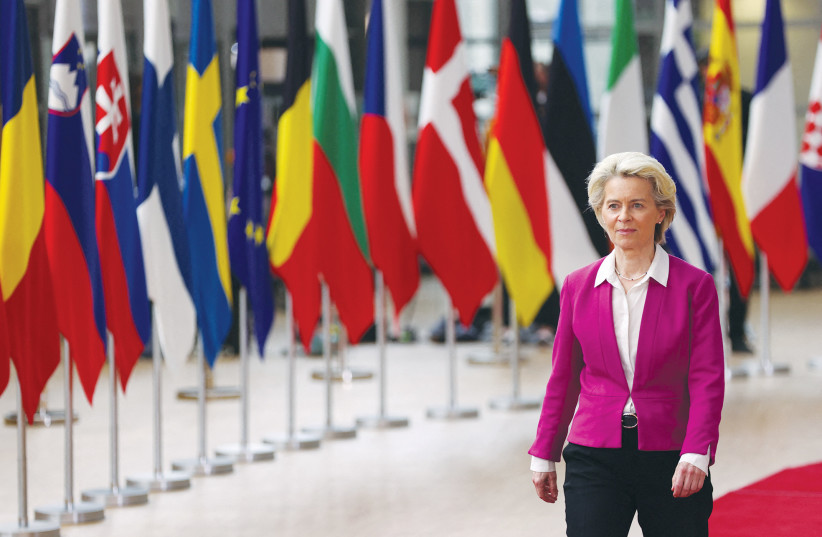The energy ministers of Israel, Egypt and the European Union signed a memorandum of understanding to export Israeli gas to Europe, at a ceremony in Cairo on Wednesday.
The agreement comes as Europe looks for alternative sources of energy to Russia in light of its invasion of Ukraine.
Israeli gas to EU
The gas will be transferred from Israel to Egypt via an existing pipeline. Egypt will use its facilities to liquefy the gas for export to ensure a steady stream of natural gas to Europe, while ensuring the energy security of all sides.
“The MOU will allow Israel to export natural gas to Europe for the first time, and that is even more impressive when considering that significant agreements we have signed in the past year, making Israel and its energy and water market a key player in the world.”
Energy Minister Karin Elharrar
The arrangement is meant to continue until at least 2030, and will be gradually reduced until 2050. The sides agreed to work together on carbon capture and the reduction of carbon emissions, as well as to cooperate with the private sector on green energy and energy efficiency initiatives.
In addition, the sides agreed to work on a plan to make gas exports to Europe more efficient. The EU will encourage European companies to take part in searching for and producing natural gas in Israeli and Egyptian economic waters.

Israel: Global energy player?
Energy Minister Karin Elharrar characterized the signing as “a great moment in which little Israel becomes a significant player in the global energy market.”
“The MOU will allow Israel to export natural gas to Europe for the first time, and that is even more impressive when considering that significant agreements we have signed in the past year, making Israel and its energy and water market a key player in the world,” Elharrar stated.
European Commission President Ursula von der Leyen, who was present at the signing, tweeted, “With this... agreement we will work on the stable delivery of natural gas to the EU from the East Med region. This will contribute to our EU energy security. And we are building infrastructure fit for renewables – the energy of the future.”
Von der Leyen addressed the important role of EU-Israel energy cooperation in her remarks to Prime Minister Naftali Bennett in Jerusalem on Tuesday.
“The EU was the biggest, most important client of the Russian supplier – for oil, gas and coal,” she said, “but with the beginning of this war and the attempt of Russia to blackmail us through energy, by deliberately cutting off the energy supplies, we decided to cut off and to get rid of the dependency on Russian fossil fuels and to move away from Russia and diversify to trustworthy suppliers.”
<br>Russian energy exports
Russia provided Europe with about 40% of its natural gas consumption per year – more than 150 billion cubic meters (bcm). Israel cannot take Russia’s place altogether, but Eastern Mediterranean states can provide about 20 bcm annually, most of which would come from Israel. The US promised Europe 15-20 bcm of liquefied natural gas following the Russia sanctions, and Qatar is expected to export 20-30 bcm to the continent.
Talks between the EU and Israel toward a framework agreement for transferring gas officially began in late April.
Energy Ministry Director-General Lior Schillat said last month, “The Europeans and Americans expect that the energy crisis will influence the continent not only in the next couple of years but for the next decade as they try to reduce dependence on Russian gas. Israel, as part of this effort, will have to build infrastructure to send more gas to Egypt and then to Europe. It is a long-term effort.”
Gas exploration and production company Energean brought the Karish reservoir in Israel’s northern waters online earlier this month, which works toward the Energy Ministry’s aim of doubling Israel’s gas export capacity in the coming years.
“Today, the local market uses 12 billion cubic meters and we export another four to Egypt and three to Jordan,” Schillat said. “We will start with low numbers [of additional exports] and increase as Israel’s capacity grows.”
